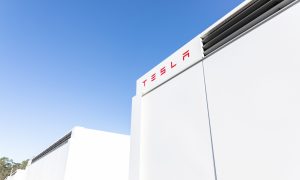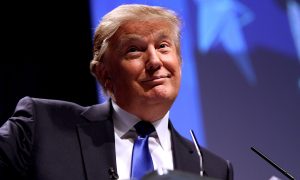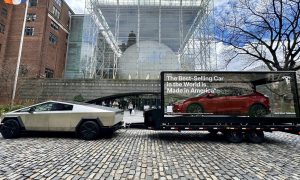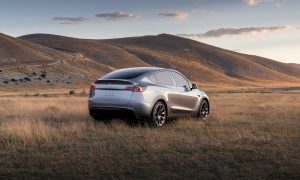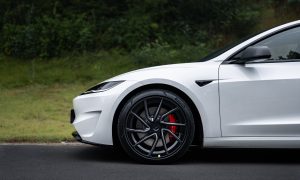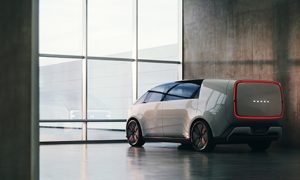News
Tesla Ships to Norway Using a Natural Gas Powered Ferry
Norwegian shipping company Nor Lines has struck a deal to deliver Teslas from Bremerhaven, Germany direct to the west coast of Norway using LNG powered ferries to reduce carbon emissions from diesel transporters.
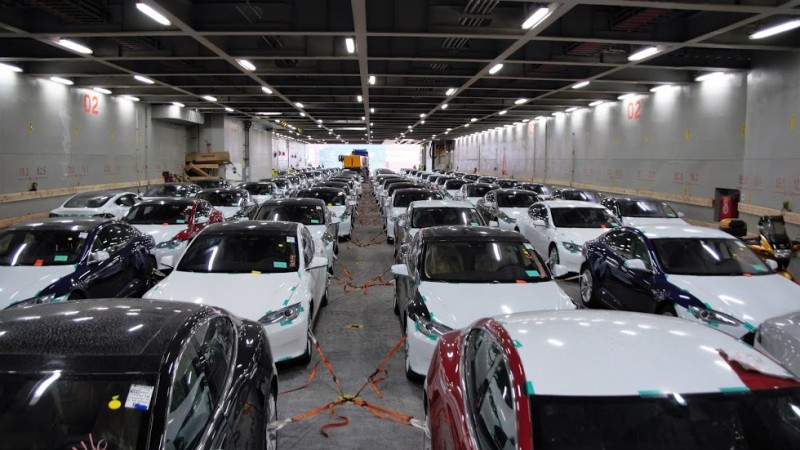
Norwegian shipping company Nor Lines has made an agreement with Tesla Motors to ship its cars using a natural gas powered ferry. Shipping the cars by sea will significantly reduce carbon dioxide emissions compared to using traditional diesel powered transporters. The first cargo of 79 Tesla Model S sedans arrived on the west coast of Norway on March 29.
Nor Lines has been negotiating with Tesla for some time. The fact that its ships use liquid natural gas instead of heavy bunker oil seems to have been the factor that won Tesla over. “I don’t think we would have crossed the finish line as easily if the ships were run on heavy oil,” Nor Lines representative Anders Sandvik told Norway’s PursuitGreen.
This is a first for Nor Lines because the voyage will be followed up with a full complement of cargo headed south on the return voyage. “There was one time when the ship sailed home empty,” Sandvik says. “But we now have a delivery of 79 cars combined with regular line traffic. With all the other goods we have on board, that results in good utilization of vessels and line structure.”
The arrangement with Tesla happened almost by accident. When Sandvik bought a Tesla Model S last fall, it made him aware of how much unused capacity there was at the port of Drammen. “I didn’t think it made any sense for cars going to western and northern Norway through a port in the east of the country,” Sandvik says.
He got in touch with Tesla and negotiations began. “In January we took up the thread again and now we are ready for the first pilot project.” he says. Tesla was very interested in making sure its cars would arrive in a timely fashion, but once Sandvik assured them they would, the company accepted Nor Lines’ proposal and pricing structure.
The shipping company is hoping Tesla will ship 40 to 50 cars a week from Bremerhaven, Germany directly to Norway. That would eliminate hundreds of truck shipments every year. Sandvik praises Tesla for being willing to consider using Nor Lines to ship its cars. “I think it is wonderful that Tesla dares to be a little different than the traditional commodity owner. They really take the environment seriously and actively seek to minimize their carbon footprint. I miss such vigor in other industries today,” Sandvik says.
Photo credit: Anders Sandvik, Nor Lines
Special thanks to Leif Hansen of Norway for bringing this story to our attention, and to Anders Sandvik for the collaboration.
News
Armored Tesla Cybertruck “War Machine” debuts at Defense Expo 2025
Lorem ipsum dolor sit amet, consectetur adipisicing elit, sed do eiusmod tempor incididunt ut labore et dolore magna aliqua.
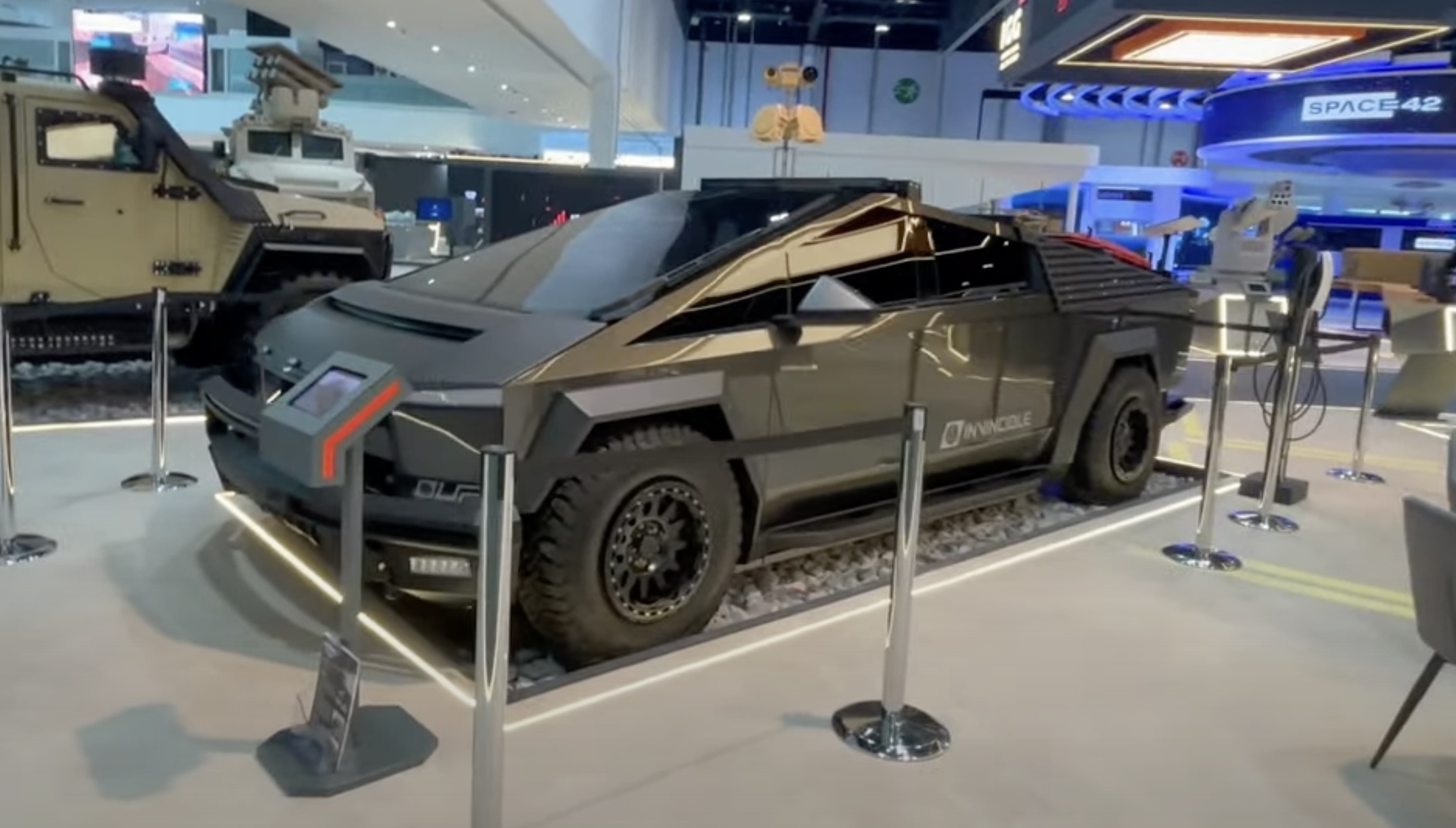
Temporibus autem quibusdam et aut officiis debitis aut rerum necessitatibus saepe eveniet ut et voluptates repudiandae sint et molestiae non recusandae. Itaque earum rerum hic tenetur a sapiente delectus, ut aut reiciendis voluptatibus maiores alias consequatur aut perferendis doloribus asperiores repellat.
Lorem ipsum dolor sit amet, consectetur adipisicing elit, sed do eiusmod tempor incididunt ut labore et dolore magna aliqua. Ut enim ad minim veniam, quis nostrud exercitation ullamco laboris nisi ut aliquip ex ea commodo consequat.
“Duis aute irure dolor in reprehenderit in voluptate velit esse cillum dolore eu fugiat”
Nemo enim ipsam voluptatem quia voluptas sit aspernatur aut odit aut fugit, sed quia consequuntur magni dolores eos qui ratione voluptatem sequi nesciunt.
Et harum quidem rerum facilis est et expedita distinctio. Nam libero tempore, cum soluta nobis est eligendi optio cumque nihil impedit quo minus id quod maxime placeat facere possimus, omnis voluptas assumenda est, omnis dolor repellendus.
Nulla pariatur. Excepteur sint occaecat cupidatat non proident, sunt in culpa qui officia deserunt mollit anim id est laborum.
Sed ut perspiciatis unde omnis iste natus error sit voluptatem accusantium doloremque laudantium, totam rem aperiam, eaque ipsa quae ab illo inventore veritatis et quasi architecto beatae vitae dicta sunt explicabo.
Neque porro quisquam est, qui dolorem ipsum quia dolor sit amet, consectetur, adipisci velit, sed quia non numquam eius modi tempora incidunt ut labore et dolore magnam aliquam quaerat voluptatem. Ut enim ad minima veniam, quis nostrum exercitationem ullam corporis suscipit laboriosam, nisi ut aliquid ex ea commodi consequatur.
At vero eos et accusamus et iusto odio dignissimos ducimus qui blanditiis praesentium voluptatum deleniti atque corrupti quos dolores et quas molestias excepturi sint occaecati cupiditate non provident, similique sunt in culpa qui officia deserunt mollitia animi, id est laborum et dolorum fuga.
Quis autem vel eum iure reprehenderit qui in ea voluptate velit esse quam nihil molestiae consequatur, vel illum qui dolorem eum fugiat quo voluptas nulla pariatur.
News
Tesla Megapacks chosen for 548 MWh energy storage project in Japan
Tesla plans to supply over 100 Megapack units to support a large stationary storage project in Japan, making it one of the country’s largest energy storage facilities.
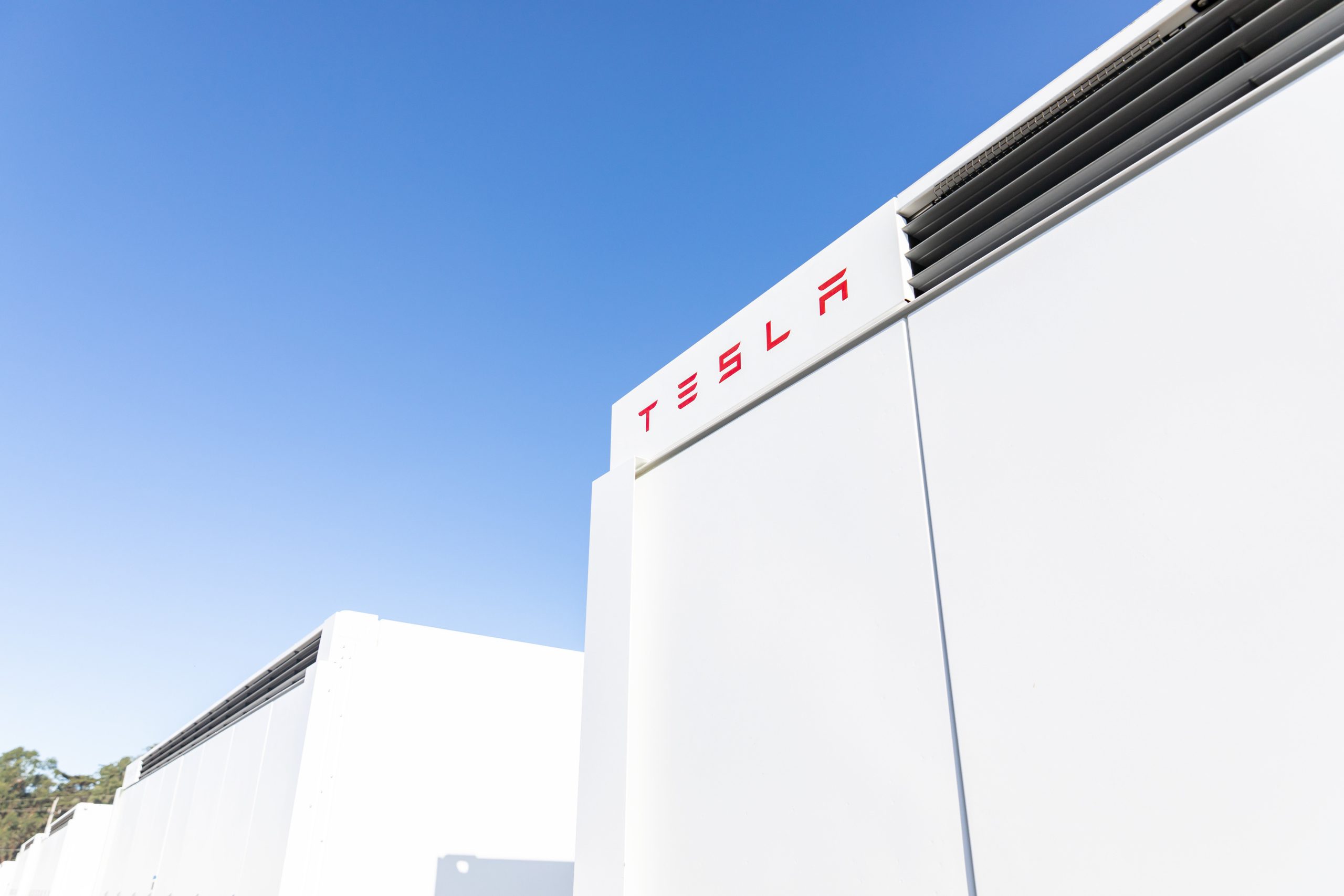
Tesla’s Megapack grid-scale batteries have been selected to back an energy storage project in Japan, coming as the latest of the company’s continued deployment of the hardware.
As detailed in a report from Nikkei this week, Tesla plans to supply 142 Megapack units to support a 548 MWh storage project in Japan, set to become one of the country’s largest energy storage facilities. The project is being overseen by financial firm Orix, and it will be located at a facility Maibara in central Japan’s Shiga prefecture, and it aims to come online in early 2027.
The deal is just the latest of several Megapack deployments over the past few years, as the company continues to ramp production of the units. Tesla currently produces the Megapack at a facility in Lathrop, California, though the company also recently completed construction on its second so-called “Megafactory” in Shanghai China and is expected to begin production in the coming weeks.
READ MORE ON TESLA MEGAPACKS: Tesla Megapacks help power battery supplier Panasonic’s Kyoto test site
Tesla’s production of the Megapack has been ramping up at the Lathrop facility since initially opening in 2022, and both this site and the Shanghai Megafactory are aiming to eventually reach a volume production of 10,000 Megapack units per year. The company surpassed its 10,000th Megapack unit produced at Lathrop in November.
During Tesla’s Q4 earnings call last week, CEO Elon Musk also said that the company is looking to construct a third Megafactory, though he did not disclose where.
Last year, Tesla Energy also had record deployments of its Megapack and Powerwall home batteries with a total of 31.4 GWh of energy products deployed for a 114-percent increase from 2023.
Other recently deployed or announced Megapack projects include a massive 600 MW/1,600 MWh facility in Melbourne, a 75 MW/300 MWh energy storage site in Belgium, and a 228 MW/912 MWh storage project in Chile, along with many others still.
What are your thoughts? Let me know at zach@teslarati.com, find me on X at @zacharyvisconti, or send us tips at tips@teslarati.com.
Tesla highlights the Megapack site replacing Hawaii’s last coal plant
Need accessories for your Tesla? Check out the Teslarati Marketplace:
News
Elon Musk responds to Ontario canceling $100M Starlink deal amid tariff drama
Ontario Premier Doug Ford said, opens new tab on February 3 that he was “ripping up” his province’s CA$100 million agreement with Starlink in response to the U.S. imposing tariffs on Canadian goods.
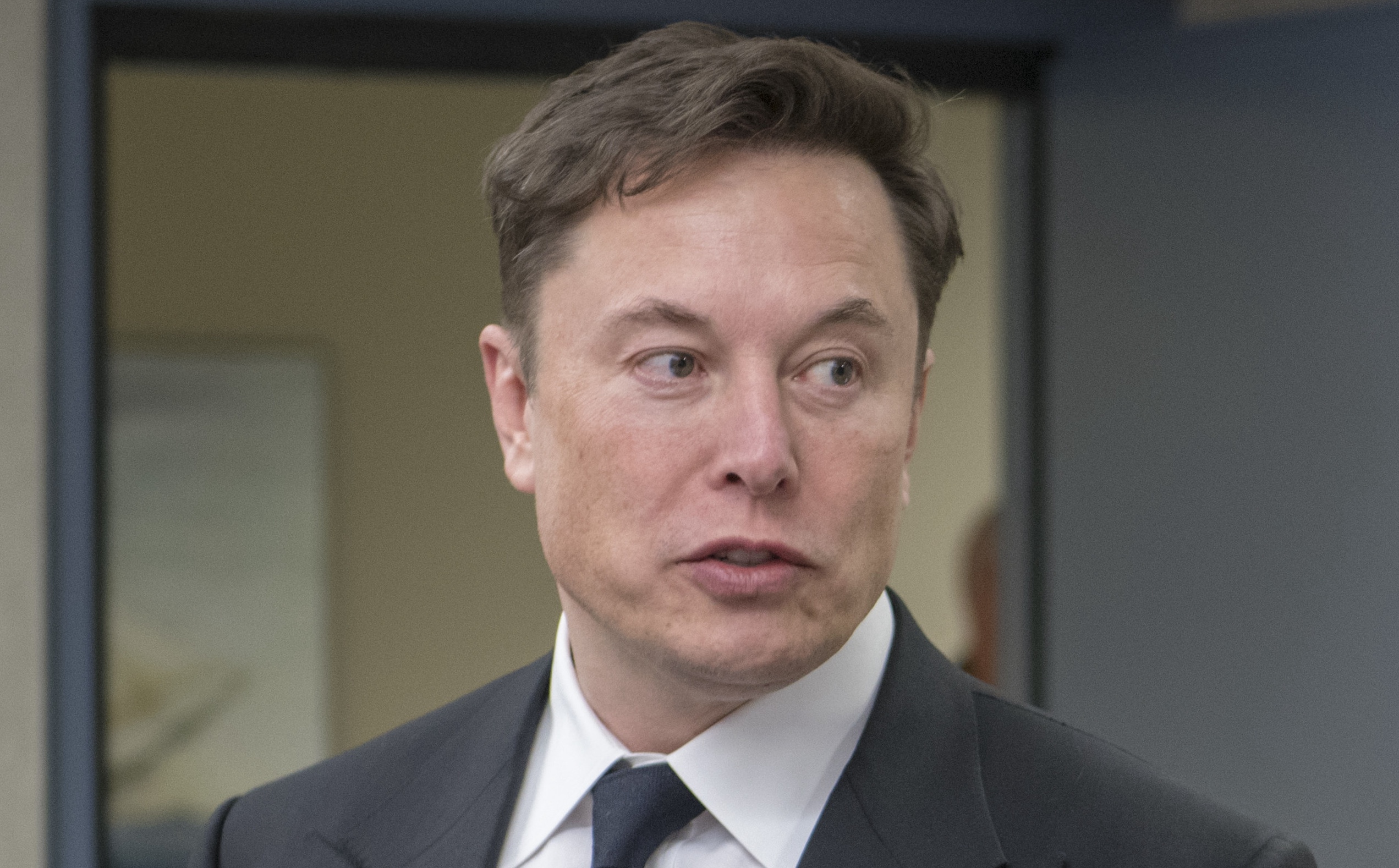
Elon Musk company SpaceX is set to lose a $100 million deal with the Canadian province of Ontario following a response to the Trump administration’s decision to apply 25 percent tariffs to the country.
Starlink, a satellite-based internet service launched by the Musk entity SpaceX, will lose a $100 million deal it had with Ontario, Premier Doug Ford announced today.
Starting today and until U.S. tariffs are removed, Ontario is banning American companies from provincial contracts.
Every year, the Ontario government and its agencies spend $30 billion on procurement, alongside our $200 billion plan to build Ontario. U.S.-based businesses will…
— Doug Ford (@fordnation) February 3, 2025
Ford said on X today that Ontario is banning American companies from provincial contracts:
“We’ll be ripping up the province’s contract with Starlink. Ontario won’t do business with people hellbent on destroying our economy. Canada didn’t start this fight with the U.S., but you better believe we’re ready to win it.”
It is a blow to the citizens of the province more than anything, as the Starlink internet constellation has provided people in rural areas across the globe stable and reliable access for several years.
Musk responded in simple terms, stating, “Oh well.”
Oh well https://t.co/1jpMu55T6s
— Elon Musk (@elonmusk) February 3, 2025
It seems Musk is less than enthused about the fact that Starlink is being eliminated from the province, but it does not seem like all that big of a blow either.
As previously mentioned, this impacts citizens more than Starlink itself, which has established itself as a main player in reliable internet access. Starlink has signed several contracts with various airlines and maritime companies.
It is also expanding to new territories across the globe on an almost daily basis.
With Mexico already working to avoid the tariff situation with the United States, it will be interesting to see if Canada does the same.
The two have shared a pleasant relationship, but President Trump is putting his foot down in terms of what comes across the border, which could impact Americans in the short term.

![Tesla Model S transported to Norway in a natural gas powered ferry [Source: Anders Sandvik] Teslas on LNG Ferry In Norway](http://www.teslarati.com/wp-content/uploads/2016/03/Teslas-on-Ferry-Anders-Sandvik-saysla.no_.jpg)
![Tesla Model S being unloaded from a shipping ferry in Norway [Source: Nor Lines] Nor Lines Shipping Boat](http://www.teslarati.com/wp-content/uploads/2016/03/Nor-Lines-Tesla-Shipping-Boat.jpg)
